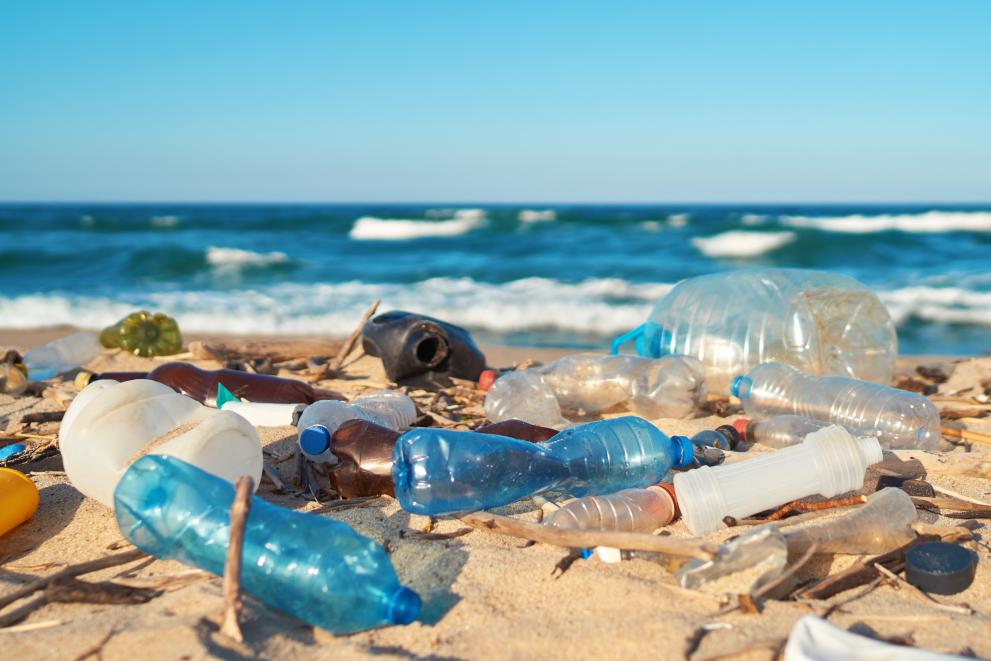
With the global community being far from achieving its objective of ending plastic pollution unless more stringent and co-ordinated policies are implemented, the EU is calling for an agreement on rules that tackle plastic pollution at its source.
In particular, the EU calls for a comprehensive lifecycle approach to plastics with bans on certain products and enhanced product design. The new instrument should include legally binding obligations across the entire lifecycle of plastics, from plastic polymer production to waste management and final disposal, to prevent plastic pollution in marine environments as well as others..
More than 4,000 participants from governments, NGOs, industry, and civil society are expected in Canada to find a way to conclude negotiations of a new legally binding instrument to end plastic pollution by the end of 2024.
Executive Vice-President for the European Green Deal, Maroš Šefčovič, who is representing the Commission in Ottawa, said:
“Plastics are important in our economy and daily lives, but the serious negative effects on the environment and human health caused by plastic pollution must come to an end. The new global treaty must transform the way plastic products are designed, produced, used, and recycled. I call on all to join forces in the fight against pollution, which will also address the climate and biodiversity crises the world is currently facing.”
Cutting plastic pollution at the product design phase
Substances and design features that are introduced at the production or manufacturing stage of the plastic life cycle, have a significant impact on plastic pollution. Essential elements of the future treaty would be obligatory elimination and restrictions on plastic products that are avoidable, or problematic as they are particularly prone to be littered or pose a significant risk to human health and the environment. Intentionally added microplastics in products should also be banned.
During the meeting in the Canadian capital, negotiators will work on a revised draft of the treaty, in view of the final session later this year. Members of the negotiating committee will need to find agreement and alignment to secure the successful finalisation of the treaty text, as mandated by the United Nations Environment Assembly.
To mobilise support, the EU is actively involved in the High Ambition Coalition to End Plastic Pollution, which includes 65 countries committed to aim high in the negotiations to end plastic pollution by 2040. On April 15, the coalition released its Ministerial Statement prepared for the meeting in Ottawa, calling for several legally binding core obligations in the new treaty, including on products.
Next steps
The negotiations during this fourth session of the Intergovernmental Negotiating Committee (INC) will continue until 29 April. The final text of the Treaty on global plastics pollution is expected to be concluded during the fifth session of the INC in November-December this year. The EU will continue to work with its allies and other partners aiming at a rapid conclusion of the negotiations.
Background
Plastics are important materials for our economy and daily lives. However, the exponential growth of production and consumption of plastics in recent decades is having serious negative effects on the environment and human health.
According to UNEP data from 2021, global plastic production amounts to some 400 million tonnes (Mt) per year. Yet only an estimated 12% of the plastics produced have been incinerated and only 9% recycled. The remainder has either been disposed of in landfills or released into the environment, including the oceans. In its Global Plastics Outlook from 2022, the OECD suggests that plastic leakage to the environment is projected to double to 44 Mt a year, exacerbating environmental and health impacts. Meanwhile, the stocks of accumulated plastics in rivers and oceans is projected to more than triple, from 140 Mt in 2019 to 493 Mt in 2060. Greenhouse gas emissions from plastics production and use are also projected to more than double, to 4.3 Gt CO2e.
The adoption of a legally binding instrument to end plastic pollution is a key priority of the EU’s Circular Economy Action Plan under the European Green Deal. The global community achieved a big milestone during the fifth session of the United Nations Environment Assembly in March 2022, when countries agreed to start negotiations for the new instrument.
The High Ambition Coalition, co-chaired by Norway and Rwanda, brings together like-minded countries, advocating ambitious goals for the new legally binding instrument to tackle the growing amount of plastic waste choking our planet.
For More Information
High Ambition Coalition to End Plastic Pollution
High Ambition Coalition Joint Ministerial Statement INC-2
The EU’s work on Plastic pollution
Plastic pollution UNEA resolution
EU helps launch negotiations on landmark global agreement on plastic pollution – press release (02 March 2022)
Details
- Publication date
- 19 April 2024
- Author
- Directorate-General for Environment

